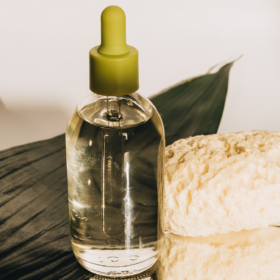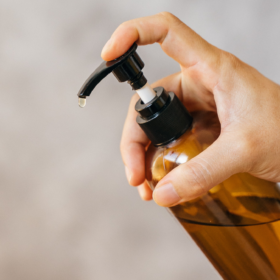
Why you should use lubricant
In this article
What's the lowdown?
Lubricants are used by many people, regardless of how much natural lubricant they produce
Lubricants can increase pleasure from solo, vaginal or anal sex
Reduced discomfort, irritation and friction from lubricant use can also reduce your chances of developing a UTI
A water-based lubricant is the best choice for beginners or those with sensitive skin
In an ideal world, our vaginas would lubricate themselves adequately every time we need them to. We never experience uncomfortable friction, or wonder why, during sex, they aren’t acting as turned on as we’re feeling in our heads. Unfortunately, this isn’t an ideal world.
Vaginal dryness, whether it happens once or twice, only in certain situations or most of the time, isn’t fun. Luckily, though, lubricant exists, and it’s remarkably effective. In a study of more than 2,000 women, it was found that lube increased pleasure for solo sex, penile-vaginal sex and penile-anal sex – whether they suffered from vaginal dryness or not.
Everyone with a vagina produces varying levels of natural lubricant, so there’s no ‘normal’ here. Using lube is relatively common and can have loads of benefits for your sex life and your health, even if you don’t suffer from vaginal dryness. In fact, lots of people use lubricant to enhance their sex lives regardless of their natural lubricant levels – it’s a personal choice, and definitely nothing to be ashamed of!
What does lubricant do?
In the broadest possible terms, lubricant facilitates the movement of one object against another. During sex – be it solo, vaginal or anal – lube is used to decrease uncomfortable friction between one body part and another (or between a body part and a sex toy), with the aim of improving pleasure and decreasing discomfort.
What can lubricant be used for?
Vaginal dryness
Vaginal dryness can happen at any age, and is an umbrella term that refers to inadequate natural lubrication, from reasons ranging from a lack of sexual arousal to hormonal changes due to the menopause.
Some may find that they experience vaginal dryness only occasionally, which is totally normal, while for others it might be a more constant problem. It can cause pain during sex, soreness and itchiness, and can increase your risk of developing a urinary tract infection. A good lubricant can mitigate the risks of these problems occurring as a result of solo or partnered sex.
Improving pleasure
Studies show that women enjoy sex more when it is ‘wet’ rather than dry, and feel that it is easier to achieve orgasm when sex is wetter. The purpose of a lubricant during sexual activity is to increase wetness, and this has positive implications for your overall pleasure.
Reducing pain and discomfort
Vaginal dryness can occur for a multitude of reasons, but it commonly occurs during the menopause, or alongside conditions like atrophic vaginitis. If the vagina is not properly lubricated during sex, it can be painful and sore, and for anyone experiencing vaginal dryness, their own natural lubrication may not cut it.
Lubricant can act in place of the vagina’s natural lubrication, creating less friction and, as a result, less soreness and discomfort.
Reducing friction with condoms
Most condoms come with a small amount of lubricant already on them, but this isn’t always sufficient. A condom is made of a thin layer of plastic, which actually creates more friction than bare skin does, meaning the uncomfortable effects of inadequate lubrication might be more prominent.
Lots of people find that they need to use additional lubricant when using condoms, as the lubricant the condom comes with just isn’t enough.
Does lubricant have side effects?
There are a few different types of lubricant: water-based, oil-based and silicone-based. While no one type of lube causes ‘side effects’ per se, there are some things you should watch out for. Oil-based and silicone-based lubricants are long-lasting and harder to wash off, which makes them great for use in the shower, but means you’ll have to use soap to properly remove them. Soap can be irritating to the delicate skin of the vulva and vagina, and can cause itching or soreness (so be wary of intimate washes). By the same logic, oil-based and silicone-based lubricants are also harder to wash out of clothing and bedding, so watch where you spill!
Both oil-based and silicone-based lubricants last a long time, and don’t generally need reapplying too often. Oil-based lubes, though, can interact with the latex in latex condoms, damaging them and rendering them ineffective. So it’s really important that you don’t use the two products together. Silicone-based lubricants can interact with silicone in some sex toys too, causing them to degenerate over time.
Water-based lubricants, on the other hand, wash off easily and don’t interact with condoms or sex toys. This means that they don’t last as long – so you might need to reapply – and they won’t be too effective in the shower, but they’re great for anyone with sensitive skin. They also don’t interact with the latex in condoms or the silicone in sex toys, so they’re a brilliant all-rounder.
Get Yes Organics lube from Amazon! (affiliate link)
Our medical review process
This article has been medically reviewed for factual and up to date information by a Lowdown doctor.


